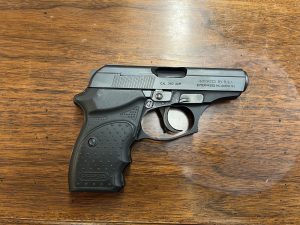Deadly Weapon finding on DWI
 What is the meaning of a deadly weapon finding on DWI? A deadly weapon finding in a Felony DWI can be very dangerous. One of the primary goals for a DWI Defense Lawyer is to get the District Attorney to waive the deadly weapon finding. By waiving the deadly weapon paragraph, more options begin to open. For example, after waiving the deadly weapon finding probation becomes a possibility.
What is the meaning of a deadly weapon finding on DWI? A deadly weapon finding in a Felony DWI can be very dangerous. One of the primary goals for a DWI Defense Lawyer is to get the District Attorney to waive the deadly weapon finding. By waiving the deadly weapon paragraph, more options begin to open. For example, after waiving the deadly weapon finding probation becomes a possibility.
I didn’t have a gun during my DWI Arrest! What is the meaning of a Deadly Weapon finding on DWI?
This is a very good question. When people think “deadly weapon” they think of guns, knives and the like. However, the law treats this phrase differently. Under Penal Code 1.07, which defines a multitude of terms, a “deadly weapon” is:
- a firearm or anything manifestly designed, made, or adapted for the purpose of inflicting death or serious bodily injury; or
- anything that in the manner of its use or intended use is capable of causing death or serious bodily injury.
Let’s break this down. The first definition fits common sense. A deadly weapon is a tool that plainly appears made for causing injury, like a gun or knife. The second definition, however, is where problems arise. In simple terms, this definition, and cases that interpret it, say that anything is a deadly weapon if it is capable of causing injury. This means that items like rope or pencils can be deadly weapons. This definition, unfortunately, also means cars can be a deadly weapon if used in specific ways. As a “fun” side note: for assault cases a person’s own body might be a “deadly weapon” if they have martial training.
The State commonly (but not always) adds a deadly weapon charge to Felony DWI. The typical language claims that the “deadly weapon” was used in the commission of (or flight from) a felony and the defendant used the deadly weapon. Though not wholly inaccurate, adding this paragraph is highly unfair when the Felony DWI involves, for example, simply sleeping in your car with the engine on. In other words, the State might add the deadly weapon paragraph even if no one was actually in danger (e.g., no DWI accident).
Deadly Weapon and Probation
One VERY important thing to note is that the court CAN NOT give you probation if there is a deadly weapon paragraph. By “the court,” I mean that the law prohibits judge-ordered probation with a deadly weapon finding. On the other hand, a jury may still recommend probation (though there are other technical issues not important here). Essentially, the statute that applies to judge-ordered probation. 42A.053, does not apply if there is a deadly weapon finding. Tex. Code Crim. App. 42A.054. Using the language above, if the court finds that a deadly weapon was used during (or in flight from) a felony and that defendant was the one using the weapon, then the court cannot give probation.
Deadly Weapon and Parole
Similar to probation, the rules regarding parole differ depending on the existence of a deadly weapon finding. Since judge-ordered probation is unavailable if there is a deadly weapon finding, that means prison time is the most common punishment. While one may be eligible for parole in most cases (certain facts might change that), the eligibility requirements will be different depending on the deadly weapon finding. If the court makes a deadly weapon finding, then the minimum waiting period for parole eligibility is 2 years. By law, if there is a deadly weapon finding an inmate is not eligible for parole (not counting good conduct time) before completing half the sentence or 30 years, whichever is less, but no less than 2 years.
More about Mimi Coffey & The Coffey Firm
When people look for a Top DWI Attorney or Best DWI Attorney, they look for experience, certification, and respect in the legal community. Mimi Coffey is a nationally-renowned trial attorney, board-certified in DWI by the NCDD. She has been practicing for over 24 years and is an author of multiple DWI Defense textbooks. She is also a national and state-wide lecturer on the law.
The Coffey Firm handles a wide variety of cases, including Unlawful Carrying Weapon (UCW), Assault (including family violence), and Possession charges. We can also help you try to get a DWI off your record or avoid probation revocation. The Coffey Firm offers fair DWI payment plans and free consultations.
Mimi is also listed on several “top criminal lawyer near me” directory listings such as Wise County DWI Lawyers, Tarrant County DWI Lawyer, Dallas County DWI attorney, Collin County DWI attorneys and Parker County DWI attorneys. Mimi is a caring DWI Lawyer in Dallas – Fort Worth. She is also involved in the Texas Tech School of Law foundation and enjoys using the skills she has developed to give back to the community.

